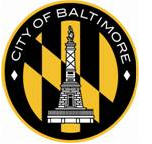Mayor Brandon M. Scott Launches My Digital Data Locker to Help Vulnerable Residents Maintain Vital Documents
Tuesday Mar 9th, 2021

Brandon M. Scott
Mayor,
Baltimore City
250 City Hall - Baltimore Maryland 21202
(410) 396-3835 - Fax: (410) 576-9425
FOR IMMEDIATE RELEASE
CONTACT
Sydney Burns
(443) 610-5862
sydney.burns@baltimorecity.gov
BALTIMORE, MD (Tuesday, March 9, 2021) — To better meet the needs of Baltimore’s most vulnerable residents, Mayor Brandon M. Scott has announced that the Mayor’s Office of Homeless Services (MOHS) and Baltimore’s Continuum of Care (CoC) have launched My Digital Data Locker Baltimore – a web-based tool that gives people experiencing homelessness a secure place to manage digital copies of vital documents needed to obtain housing services.
My Digital Data Locker Baltimore went live this month and allows MOHS clients to securely store and share electronic copies of vital documents – such as birth certificates and government-issued identification cards – with housing case managers and benefits program specialists, streamlining a critical step on the path to secure permanent housing. Using the platform, clients manage their own accounts and control who has access to their documents.
“To eliminate homelessness, we must eliminate the barriers that stand in the way of our neighbors accessing housing,” said Mayor Brandon M. Scott. “I want to thank MOHS, the CoC, and all of our partners for using technology and ingenuity to close the gap between people experiencing homelessness and their access to permanent housing.”
This initiative is one part of a broader anti-homelessness strategy and more effective homeless response system from the Scott Administration. In February, MOHS and the Maryland Department of Transportation Motor Vehicle Administration announced how they partnered to secure state-issued identification cards for individuals experiencing homelessness – a critical step in MOHS clients becoming “document ready” to receive housing through City housing programs.
Further, since the start of the pandemic, MOHS has moved 291 people and families from temporary shelter to more permanent housing. The City is on track to make at least 155 additional housing offers to people and families by the end of the month. With the help of My Digital Data Locker and the Rapid Rehousing Program, the City will be able to house more people in a more efficient way.
To make this platform a reality, Amazon Web Services collaborated with community stakeholders, including Baltimore’s CoC Lived Experience Advisory Committee (LEAC), to create a secure document management prototype. New America’s Digital Impact and Governance Initiative (DIGI) refined and developed the tool.
“Ending homelessness is a community effort and My Digital Data Locker Baltimore is a wonderful example of private and public sector partners lending funding, expertise, and innovation to better serve our neighbors experiencing homelessness in the housing application process,” said Tisha S. Edwards, Acting Director of the Mayor’s Office of Homeless Services. “Documents are frequently lost, stolen, or destroyed during a housing crisis. Now, by snapping a photo with a cell phone and uploading it to a secure account, these documents will be more easily maintained. Baltimore is proud to pilot this program.”
My Digital Data Locker Baltimore was developed through an iterative and human-centered approach that continues to rely on research and feedback from people experiencing homelessness and practitioners working to end homelessness.
“This solution is so empowering because it allows people to set up their own accounts, upload electronic copies of their vital records, and control who those documents are shared with,” said Shawn Jones, member of the LEAC.
Funders for the project include New America, Kaiser Permanente, the Annie E. Casey Foundation, and the Rockefeller Foundation. The technical design studio Two Bulls is the developer and managed service provider. The Baltimore Civic Fund is the project manager for ongoing operations.
During this three-month pilot, MOHS and service provider case managers will beta test the software. Through support from New America, New York City’s homeless services agency also plans to pilot the software later this year. The software was developed using open source code and Kaiser Permanente hopes to make it available to other cities after evaluation of the pilot.
For more information about MOHS programs, please visit Mayor's Office of Homeless Services (baltimorecity.gov). The centralized hotline for people experiencing or at risk of homelessness is 443-984-9540.
For more information about the My Digital Data Locker open source platform by New America’s DIGI, please email DIGI@newamerica.org.
###